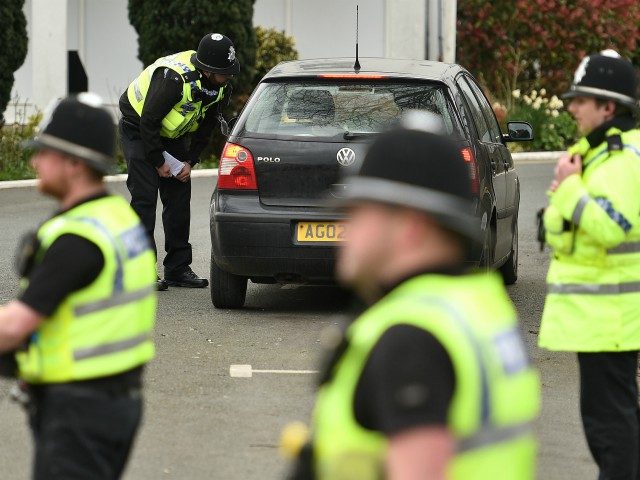An English police force confirmed that during an operation near the Forest of Dean, it had pulled over 20 drivers including three who had come from Wales to remind them of coronavirus rules, “including travel restrictions”.
The stops occurred on Friday on the first day of Wales’s “fire-break” lockdown which banned so-called unnecessary travel, after Gloucester and West Mercia police forces said last week they would be setting up roadblocks questioning travellers from Wales they believe could be breaking the regulations.
A spokesman for Gloucestershire Police claimed that while it was not conducting operations in partnership with other forces policing lockdown areas, it told the MailOnline on Tuesday that “three motorists who had travelled from Wales were spoken to about Covid restrictions”.
“Where our officers encounter someone who lives in an area that has travel restrictions and doesn’t have a reasonable cause, they will engage with that person, explain the legislation and encourage them to return home.”
“‘While we cannot issue fines to those travelling from Wales into the county we can inform the host force of those we stop about what has happened so they can take action,” the spokesman added.
The Labour leader of the Welsh government, First Minister Mark Drakeford, had also threatened to use number plate recognition technology to fine people driving from England into lockdown Wales, which the Police Federation of England and Wales said was “unenforceable”.
Drakeford has already come under criticism for banning the sale of so-called non-essential items. As part of the Welsh lockdown measures, only shops selling food, as well as pharmacies and off licences, may remain open, meaning that smaller retailers that sell clothes or hardware were forced to close.
Allegedly in order to stop supermarkets having an unfair advantage over closed shops during the lockdown, the Labour government banned them from selling items that cannot be bought at closed retailers. Essentially, if a Welshman cannot buy a mug or pair of socks from a small retailer, he would not be able to buy them from larger ones, either.
The move saw public outcry after shoppers shared pictures on social media of supermarkets condoning off areas of their stores displaying kitchen utensils, bedding, and even children’s clothing. A petition has reached over 67,500 signatures calling for supermarkets to be allowed to sell non-essential items, the largest ever appeal to be submitted to the Welsh parliament, the Senedd, according to the BBC.
In protest at the rules, Tesco shopper Christopher Noden tried to enter the supermarket in just his boxers, shoes, and mask, because the Welsh government had determined clothes were non-essential.
“What determines essential?” Mr Noden asked. “What if I ran out of boxers and socks? I couldn’t have bought any boxers or socks because it’s non-essential. Everything is essential at some point and in some way.”
In response to the public pressure, the leftist Welsh government relaxed — though did not lift — the shopping rules, adding items like children’s clothes to the essentials list, with customers able to ask shops if they may buy ‘non-essential’ items in exceptional circumstances.

COMMENTS
Please let us know if you're having issues with commenting.